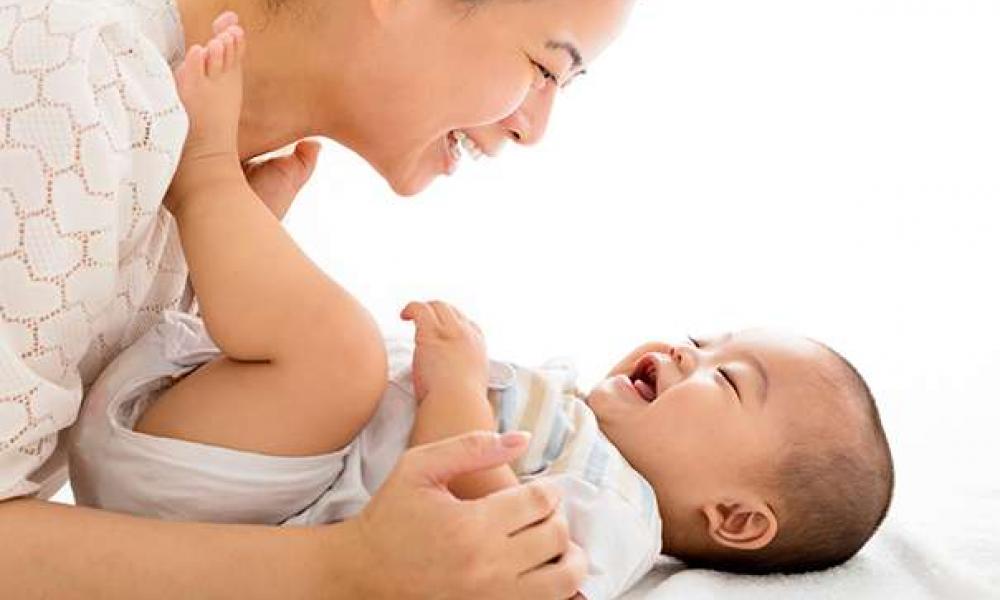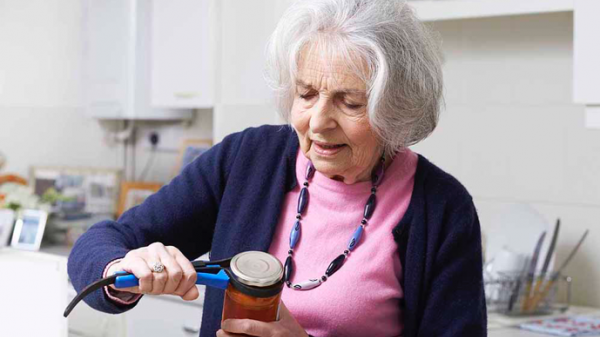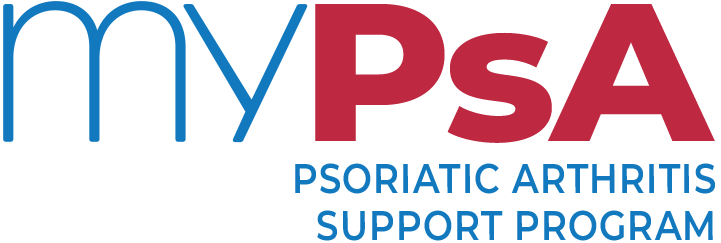
Caring for a new baby is equal parts exciting and exhausting for all new parents. As a parent with arthritis, you may experience some additional challenges.
Caring for a new baby
It is physically and emotionally demanding to care for a new baby. As a parent with arthritis, you may even experience some additional challenges. Here are a few tips that may help:
Nappy changing
- A change table on wheels may make it easy for you to move it around the house.
- Look for baby wipes and creams with easy to open lids.
- Set up a change table that is at a height where you don’t need to bend over, or one where you can even sit while changing your baby’s nappy.
Bathing
- Look for baths that can be filled and drained in the sink or bathtub. Some baths come on trolleys that can be wheeled around.
- If you’re bathing your baby in a bathtub, look for supports or slings that they can lie on. Remember you will always need to closely supervise your baby in the bath.
- When your baby is very young, it might be easier to bathe him/her in the laundry trough/sink.
Cots, bassinets and highchairs
- Look for items that are easily height adjustable, lightweight and on wheels to make it easy to move them around the house.
- Test the clips, release mechanisms and brakes to ensure they are easy to use.
Dressing
- Look for clothing that is easy to put on and take off your baby, such as elastic waists and wide opening envelope necks. These will be easier on sore hands. Avoid snap closures, buttons and zips.
- Avoid socks and shoes for your baby if you have sore hands. Instead use jumpsuits that cover your baby’s feet.
Out and about
- Use a lightweight stroller or pram that is easy to fold, unfold and lift into your car. Test the harness to ensure it is easy to clip/unclip and adjust, and ensure the brakes are easy to use. Check the height of the handle and comfort for walking. A 15kg pram versus a 6kg pram may make all the difference. It’s worthwhile testing lots of different prams before you buy as sometimes the most expensive or popular ones are not necessarily the most user friendly.
- Use a pram caddy and baby bag to keep all your essentials close to hand when you are out. Try to keep your baby bag as light as possible. Consider using a backpack instead of a bag that sits on one shoulder or hang it off your pram.
- Try different baby carriers and slings to find one that can help you carry your baby without straining your hands, arms or shoulders.
Ask for, and accept, help
- Organise a network of supportive family and friends who can help you when you need it. This will be particularly important if you have a flare of your arthritis symptoms, or even just if you and your baby are having a bad day.
- If you don’t have a support network of family and friends, investigate external help that may be available. Ask your obstetrician, midwife, community nurse or GP about support services that may be available in your area. Cleaners, nannies, au pairs, meal delivery services or other community-based supports in your area may be helpful.
- Make use of online shopping and home delivery services.
Listen to your body
- Pace yourself and be gentle with yourself. If you’re feeling exhausted, the house chores or tidying up can wait. Rest when your body is telling you it needs rest.
- Try to decide what tasks are a ‘must do’, what can wait and what can be outsourced to family, friends or hired help. Prioritise the tasks that absolutely need to get done as well as resting and enjoying your new baby. Don’t push yourself to get non-essential tasks done.
- Consider your own clothing; for example can you manage clips on maternity bras and tops, or is a pull down/up version easier?
Taking care of yourself
- Most women experience ‘the baby blues’ in the first days after your baby is born. This is very normal and may make you feel teary, irritable and overly sensitive. The baby blues usually go away after a few days.
- If you’re feeling low in mood and energy, having trouble sleeping or eating, feeling scared, sad, hopeless or angry for more than two weeks, seek help.
- You can talk to your GP, child health nurse, the Perinatal Anxiety and Depression (PANDA) Helpline (1300 726 306), your partner, friends and family. Getting the right support and treatment will help you manage post-natal depression and have you feeling better sooner.
Get advice form your healthcare team
- If you’re struggling to look after your baby because of pain or other symptoms, see your rheumatologist to talk about your treatment options.
- See a physiotherapist or occupational therapist for advice about looking after your joints and equipment that can make caring for your baby easier.
- Get advice from a child health nurse or lactation consultant for ways to make it easier to care for, and feed, your baby.
Breastfeeding and bottle feeding
Whether to breastfeed or not, or for how long, is a very personal decision. Even mothers without arthritis can have issues that can prevent breastfeeding or make it very difficult.
There are usually no physical reasons that prevent women with PsA from breastfeeding, apart from possible discomfort if you and your baby are not positioned correctly during feeding or if you have psoriasis around the breast. You can get advice on this from your child health nurse or lactation consultant at your local hospital. The choice to either breast or bottle feed your baby will depend on many factors, such as your milk supply, your baby and the medications you are taking.
Breastfeeding and medications
Many arthritis medications are safe to take during breastfeeding as they do not pass into breast milk, or only in very low levels that are safe for the baby. Others can pass into your breast milk and will not be safe for your baby. Talk to your healthcare team, including your rheumatologist and dermatologist about your plans for breastfeeding so that the best treatment plan, for both you and your baby, can be put into action when your baby is born.
See our Arthritis and Pregnancy booklet for a summary of the safety of arthritis medications during breastfeeding.
Breastfeeding and joint pain
If you decide to breastfeed, here are some tips to make it more comfortable on your sore joints:
- Find a comfortable position. You might have a supportive chair at home already, or you might choose to invest in a breastfeeding chair, but make sure your neck and back are supported in a comfortable position. New babies feed all the time so make sure the chair is very comfortable as you will be spending a lot of your day (and night) in it. Some women find breastfeeding more comfortable lying on their side, so you may have to experiment with different positions before you find what works best for you.
- Breastfeeding pillows are a great way to support your baby, without putting strain on your hands, arms, shoulders and back.
- Seek advice from a lactation consultant or child health nurse if you are finding breastfeeding difficult or painful. They may be able to recommend a range of different equipment or aids that can make all the difference.
Bottle feeding and joint pain
Bottle feeding can also cause strain on sore arms, hands, necks and upper backs.
Here are some tips:
- Find a comfortable position. Make sure you sit in a comfortable chair that supports your neck and back. Use cushions or pillows to bring your baby to a height that’s comfortable for you to hold the bottle in their mouth.
- You could also try feeding your baby in a baby carrier, sling or rocker if it’s difficult holding your baby in your arms for long periods.
- Look for wider bottles that are more comfortable to hold in your hands.
- Ask your partner, family or friends who are visiting to help when they can.
- Consider asking for help if you can’t open the cans of formula or ask your partner to prepare the bottles if you’re going to be alone for a long period of time.
- Ask someone to help you with washing all the used bottles or use a steriliser or dishwasher to clean the bottles.
Post-natal flare
Many women with arthritis find that their symptoms return or flare in the months after the baby is born.
This flare can make caring for your newborn very challenging. All the usual baby-care activities such as holding your baby during feeding, changing nappies, bathing, carrying and lifting your baby can be nearly impossible if you have severe joint pain and stiffness. You might also feel completely exhausted with arthritis-related fatigue on top of the sleep deprivation that comes with new babies.
It is a good idea to have an appointment booked with your rheumatology team four to six weeks after the birth.
If you notice your PsA symptoms worsening in the weeks or months after the birth, get in touch with your rheumatologist or dermatologist straight away for advice about your treatment options.
A physiotherapist, occupational therapist or child health nurse may also be able to give you some practical advice about how to look after your baby during a flare. Using a baby carrier/sling and other equipment can make caring for your baby easier on your joints. See the section below for some tips about caring for a new baby when you have arthritis.
Most importantly, plan to get extra help. Have a support crew of family and friends on call for extra help if your arthritis flares. Don’t be afraid to ask for help from your network during this time when you might be struggling with even the most basic tasks.
Seeking support
Who can help?
Rheumatologists are doctors who specialise in diseases of the joints. Your doctor will need to refer you to a rheumatologist. They may recommend a rheumatologist, or you can contact the Australian Rheumatology Association to find a rheumatologist.
A rheumatology nurse, if available, can help you understand your treatments, provide support and refer you to other health professionals.
A physiotherapist (physio) can use various treatments to keep your joints as flexible, strong and pain-free as possible. They will also show you exercises and pain-relief techniques to use at home.
An occupational therapist (OT) can provide advice on how to care for your baby without putting strain on your joints, including suggesting equipment and aids that can help.
Talk to your GP if you are finding your feelings and emotions are getting in the way of enjoying your life. They can suggest ways to cope, recommend medications that can help or refer you to a psychologist who can help you work through your feelings. You may be eligible for a Mental Health Care Plan, via your GP, which will provide subsidised sessions. You can also see a psychologist without needing a referral.
Perinatal Anxiety and Depression Australia (PANDA) supports women, men and families across Australia affected by anxiety and depression during pregnancy and early parenthood.
beyondblue provides information and advice about depression, anxiety, available treatments and where to get help.
Child health nurses are a wealth of information and support as you learn to care for your new baby. Ask your obstetrician or midwife or contact your local community health centre to find out about services in your area.
Lactation consultants can help you with any problems you might have with breastfeeding. Find out if your local hospital or child health clinic provides this service, otherwise you can pay for a private consultation.
The Australian Breastfeeding Association has a helpline 1800 mum 2 mum (686 268) and online forum to help you with any breastfeeding concerns.
The Independent Living Centre has information about aids and devices that can help with day-to-day activities.
Useful resources
The web can be a useful source of information and support. However, not everyone who puts information on the web is a qualified health practitioner. Some organisations make unrealistic promises in order to sell their products. Treatment options and practices from overseas may also not be relevant or approved in Australia. Always check information from the web with a trusted member of your healthcare team.
The Australian Government’s HealthDirect is an excellent starting point for web searches, as every site that HealthDirect links to has been checked for quality and accuracy of information.
Australian resources
Arthritis Australia’s website for people living with inflammatory arthritis www.empowered.org.au has a detailed section on pregnancy, including hearing directly from women with arthritis about their journeys to motherhood.
The Australian Rheumatology Association has a detailed document that outlines the most current evidence about the safety of arthritis medications during pregnancy.










